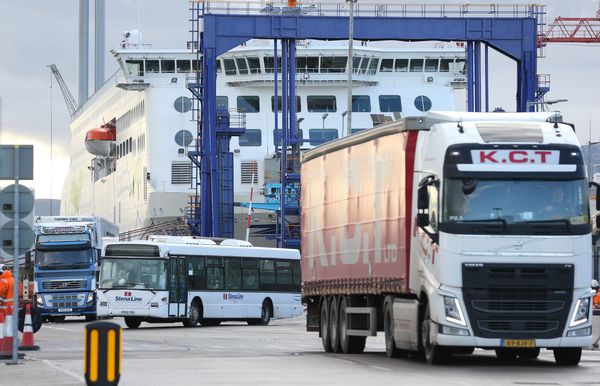THE MOMENTUM towards a border poll has in the past fortnight been building at a dizzying pace that must have surprised even the most optimistic united Irelanders and dismayed even the most pessimistic defenders of the union.
The catalyst, of course, was the DUP’s insanely short-sighted decision five years ago to campaign for a Leave vote in the referendum on the EU. That was a particularly ill-judged decision because, while it was always to be expected that the party would line up behind the little Englander flag-wavers of the Tory party, they will never be able to claim as they look gloomily back that they weren’t told firmly from the get-go where that route would take the union.
Without Scotland, with the union flag rendered a pale shadow by the removal of the Saltire’s blue, the UK will consist of two Celtic regions hanging on to the coattails of an increasingly nativist Tory government. And, with northern unionism demoralised by the loss of their Scottish cousins, with an already resurgent Welsh nationalism fired further by the Scottish example, the centre, to quote WB Yeats, cannot hold.
But what has brought us to this advanced point – where the north is no longer on the window-ledge of the union, but hanging from it by its bleeding fingertips – is the way in which the DUP has reacted to every negative post-Brexit outcome with the same dour determination to plough on regardless of the consequences.
Some senior party figures have – rather belatedly – indicated that they are in agreement with former leader Peter Robinson, who pointed out last year that unionists need to get thinking about future possibilities. And while it’s welcome that the stubborn refusal even to consider the future is being slowly pushed aside, it might well be that the bulb has gone on too late for the light to show anything worth seeing.
For the truth is that the union is not going to be decided by northern unionists. The United Kingdom will stand or fall on what happens in Scotland – and there’s every indication that Scotland will only remain in the UK for as long as the British government is able to hold off a second referendum. Without Scotland, with the union flag rendered a pale shadow by the removal of the Saltire’s blue, the UK will consist of two Celtic regions hanging on to the coattails of an increasingly nativist Tory government. And, with northern unionism demoralised by the loss of their Scottish cousins, with an already resurgent Welsh nationalism fired further by the Scottish example, the centre, to quote WB Yeats, cannot hold.
The deepening Brexit shambles and the increasing evidence of a score of straight polls suggest powerfully that Scotland will vote to leave the UK. Perhaps at this point a more pertinent question is not whether the Scots will leave, but whether they’ll get their second referendum before Ireland gets its first. Boris Johnson says he’ll travel to Scotland to shore up support for the union – a preposterous suggestion that speaks more of gaslighting than it does of realism.
Against this background, unionism here finds itself, to use a sporting analogy, with victory out of its hands. It’s relying on others for a positive, or even an acceptable, outcome. And those others are to be found not in London, Edinburgh or Cardiff, but on this island.







